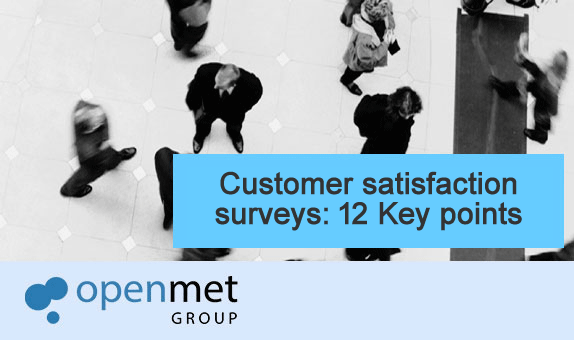Organizational well-being is a vital component for the success and sustainability of any organization. Having tools to assess the level of well-being within the organization is increasingly important, as it allows us to understand the general health, happiness, and satisfaction of employees in the workplace.
When well-being is prioritized and promoted within an organization, it creates a conducive environment for both personal and professional growth, which in turn contributes to better organizational performance.
Openmet Insights, the new free service from Openmet Group, offers you an effective way to measure and improve well-being within your company through the new self-managed and free questionnaire, ©Openmet Insights Well-Being.
©Openmet Insights Well-Being, the best way to assess organizational well-being
The ©Openmet Insights Well-Being tool has been meticulously designed to assess the well-being of employees through a brief questionnaire that addresses the most relevant and current aspects of well-being, grouped into four key indicators:
- Professional and Economic Well-Being: This category evaluates factors related to financial security, growth opportunities, work-life balance, and recognition.
- Social and Emotional Well-Being: This indicator assesses stress levels, social conflicts, and interpersonal relationships within the organization.
- Physical and Environmental Well-Being: This focuses on the comfort and atmosphere of the workspace, the ability to disconnect during free time, and the environmental impact.
- Impact: A general evaluation of the level of well-being, with the option for written comments.
All these elements come together to create a healthy and enriching work environment where people feel valued, secure, and motivated to reach their full potential.
Why implement a well-being questionnaire in your organization?
Implementing a well-being questionnaire in your organization offers several significant benefits, including:
- Provides a structured and quantifiable assessment of the current state of well-being within the organization.
- Allows for the identification of improvement areas and the creation of specific, personalized strategies to address them, rather than relying solely on subjective or informal perceptions.
- Encourages employee participation in the continuous improvement process.
- By giving employees the opportunity to express their opinions and concerns, it strengthens their sense of belonging and commitment to the organization while creating a new channel for dialogue.
And what are the benefits of promoting well-being in the organization?
Organizations that prioritize and promote the well-being of their employees reap both tangible and intangible benefits. These advantages go beyond simple employee satisfaction and can positively impact key aspects of business operations and performance:
- Higher talent retention: Organizations that prioritize employee well-being tend to experience lower turnover rates, reducing costs associated with recruiting and training new staff, as well as minimizing the loss of knowledge and experience that comes with turnover.
- Attracting talent: Companies that promote a healthy and positive work environment become more attractive to talented professionals seeking job opportunities.
- Improved productivity and performance: Employee well-being is closely linked to their level of engagement, motivation, and productivity at work. Employees who feel well and supported tend to be more productive and perform better in their tasks and responsibilities.
- Reduced absenteeism and turnover: A healthy and positive work environment can help reduce absenteeism due to illness or health problems related to stress.
- Enhanced organizational image and reputation: A strong reputation as an employer committed to well-being can help attract new clients, business partners, and opportunities.
- Positive organizational culture: Promoting well-being fosters a positive organizational culture based on respect, collaboration, and mutual support. This can strengthen team cohesion, improve interpersonal relationships, and encourage a sense of belonging and shared commitment among employees.
At Openmet, we encourage you to actively assess and promote well-being with our ©Openmet Insights Well-Being questionnaire. You’re just one step away from gaining deeper insight into your organization and starting a path of continuous improvement and change.
So, are you ready to evaluate the well-being of your organization?




